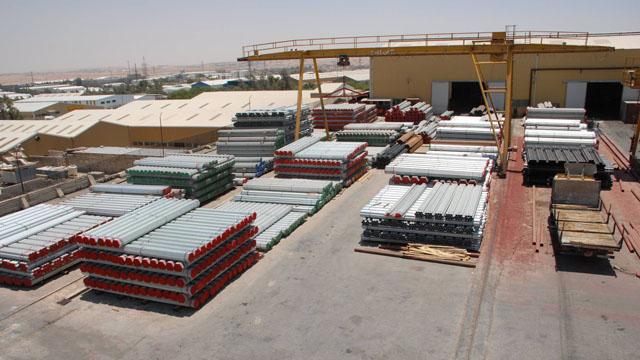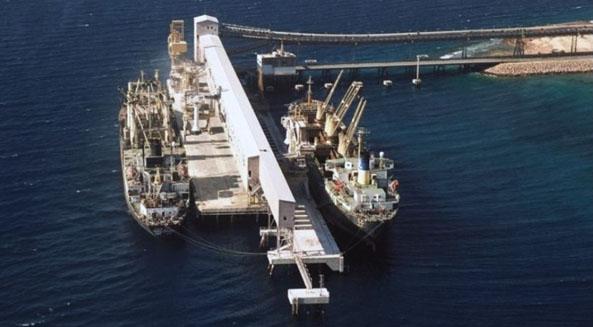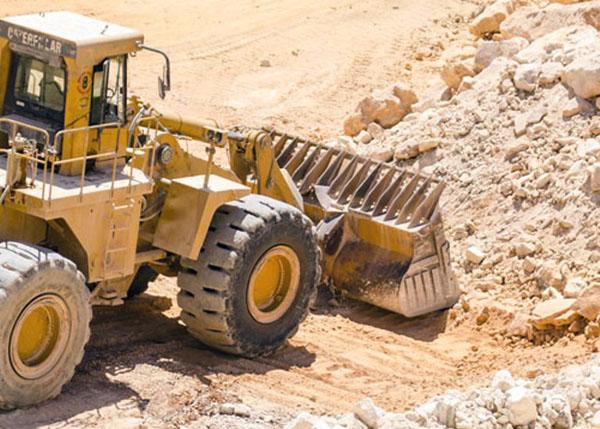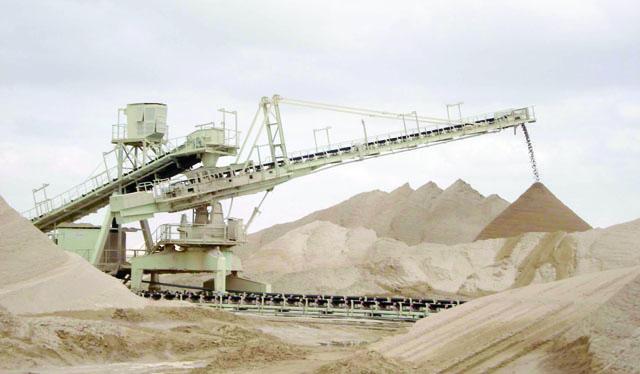You are here
Syria, Iraq, Yemen conflicts suppress Arabian Steel Pipes Manufacturing Co.
By Samir Ghawi - May 11,2015 - Last updated at May 11,2015

AMMAN — Exporting to Syria has stopped, as well as to Iraq and Yemen, the chairman of Arabian Steel Pipes Manufacturing Company told the shareholders during the general assembly meeting.
Musa Shehada said exports accounted for about 50 per cent of total sales and, with the turbulence around us, it is only natural that business activity slackened .
"The modest activity was not due to inefficiency or incapability but rather a result of political and military developments in neighbouring countries," Shehada added.
As an example, he mentioned that even exporting to Mosul via Saudi Arabia and Kuwait is no longer possible.
"Now we are looking for new openings and Algeria is an opportunity for us to try exporting to that country," he indicated, pointing out that even government tenders related to our products are no longer as they used to be.
The company, established in 1983 as a private shareholding firm and transformed into a public shareholding entity in 1993, produces black and galvanised steel pipes, coated and column pipes,as well as tubular and lattice low and medium tension electric poles.
Operations also include dismantling and installing high voltage towers and electromechanical works through the affiliated Arab Romanian Company for Electromechanical Constructions.
The annual report described the competition in the market as sharp indicating that about seven local firms are engaged in the production and marketing of black pipes.
As for the galvanised pipes, it said, the competition is limited to another public shareholding company in addition to the imported pipes which enter the Kingdom duty-free.
The company faces international competition in the manufacturing of metal towers noting that it is the only Jordanian company in this field.
The annual mentioned SABIC, the Saudi Arabia Basic Industries Company, as one of its main suppliers who provide more than 10 per cent of purchases.
According to the company's financial results as of March 31, 2015, sales totaled JD1.3 million, almost half the JD2.7 million recorded during the first quarter of last year.
As a result of a sharp fall in gross profit from JD400,000 at the end of March 31, 2014 to JD200,000, the company registered a JD100,000 loss during the first quarter of this year, after taking into account administrative, selling and other expenses.
During the first three months of last year, the company generated a JD0.1 million profit.
"If I am to be asked about the situation in 2015, I would say that only God knows," Shehada responded to a shareholder who wondered why the cash dividends were low at a rate of 10 per cent when the earnings last year were higher than the previous year.
"The board of directors debated the cash dividends and, thanks be to God, we were able to maintain the 10 per cent distribution rate in these troubling circumstances ," the chairman said.
The company distributed JD1.35 million in cash dividends to shareholders in 2010, JD1.8 million in 2011, JD1.35 million in 2012, JD900,000 in 2013 and JD900,000 last year.
In 2014, net sales amounted to JD11.8 million, 9.8 per cent higher than the JD10.7 million registered in 2013. Exports accounted for 34 per cent and 40 per cent of the totals respectively.
A breakdown of the earnings showed income from local sales at JD2.8 million (JD2.2 million in 2013), from exports at JD3.8 million (JD4 million), from tenders at JD4.2 million (JD4 million), and from contracting at JD1 million (JD500,000).
Noting that the 2014 results were below aspirations as the net profit was almost unchanged from 2013 at JD1 million, Shehadeh said: "With the increase in prices of raw materials, there is no choice but to pay the higher cost or stop production, which is not logical."
He was echoing the auditor in a response to a question from a shareholder who requested clarification as to why the costs last year rose to 83 per cent of the earnings compared to 78 per cent in 2013.
The company, with a labour force of 170 employees, sold 12,459 tonnes of different products last year, 8.35 per cent higher than the 11,500 tonnes sold in 2013.
Output in 2014 dropped by 13 per cent to 10,900 tonnes from 12,540 tonnes in the previous year.
It aims to increase output and sales in 2015 to around 12,000 tonnes.
The profit and loss statement as of December 31, 2014 showed that production cost rose by 15.3 per cent to JD9.8 million (JD8.5 million).
According to the balance sheet at the end of last year, total assets amounted to JD20.9 million (JD20.3 million) of which JD15.4 million (JD14.2 million) were current assets, and JD5.5 million (JD6.1 million) were fixed assets.
Current assets included JD9.7 million (JD10.2 million) of inventory, and JD2.5 million(JD1.8 million) in receivables.
Property, equipment and machinery accounted for approximately JD4.7 million of fixed assets in both years.
Capitalised at JD9 million, the shareholders equity in both years also includes JD3.6 million of mandatory and voluntary reserves as well as JD1.6 million of retained earnings.
Net indebtedness stood at JD4.4 million (JD4.3 million).
Jordan Islamic Bank owns the largest stake in the company as its equity stands at JD4,452,265 shares or 49.46 per cent of the capital.
Al Baraka Saudi Company has a 10.9 per cent stake.
Related Articles
Because of higher payments for energy, electricity, water and manpower, Arab Potash Company (APC) is now among the world producers with highest production costs, according to the firm's 58th annual report.
The annual report of Jordan Phosphate Mines Company (JPMC) showed an elevated performance with higher production, sales, exports and profit in 2014.
Jordan Phosphate Mines Company (JPMC) maximised its operational profit by 217.3 per cent, or JD22.9 million, during the first nine months of this year, according to a disclosure the corporation sent to the Amman Stock Exchange.



















